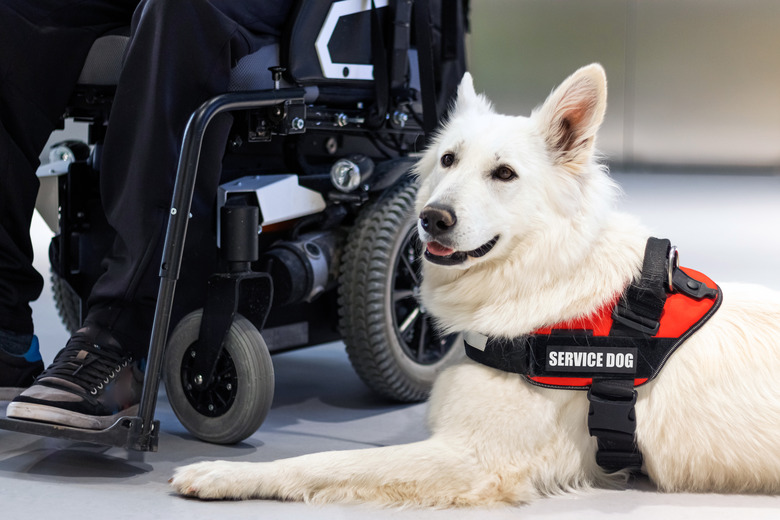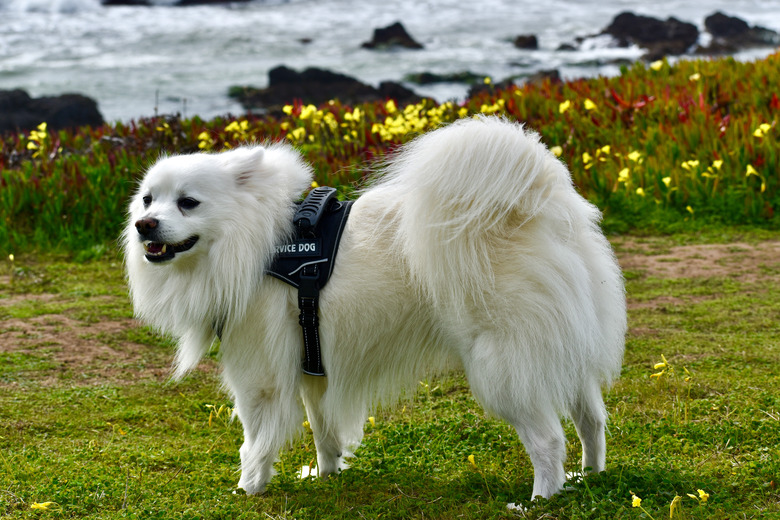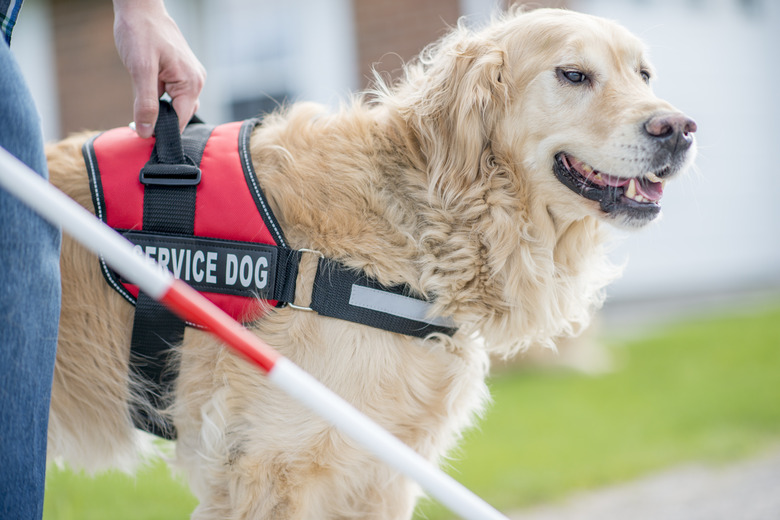How To Get A Dog Certified As A Service Dog In Washington State
Dogs can be trained to perform many tasks for people dealing with medical conditions, disabilities, or other situations that necessitate help when out and about. A service dog with training can accompany you to public areas of businesses in the state of Washington, including restaurants, without special certification. However, you'll need to know and adhere to the state's definition of a service animal before you head out.
Types of service animals
Types of service animals
Washington statute RCW 70.84.021 addresses service animals. The statute states that a "service animal means an animal that is trained for the purposes of assisting or accommodating a disabled person's sensory, mental, or physical disability."
A seeing-eye or hearing-ear dog, for example, would help its owner navigate the world by communicating information about the world that his human isn't able to perceive. This can help blind individuals navigate safely in public places. A hearing-ear dog can alert to the ding of an elevator and helps increase awareness of activity around him as his owner sees him turn his head to various sounds.
Medical alert dogs can detect a potential medical crisis, such as a seizure or migraine, before it becomes an emergency situation and signal their owner to take appropriate preventive action. Other dogs are trained for medical response, such as positioning someone during a seizure, seeking help, or dialing 911 on a special phone.
Dogs who don't qualify
Dogs who don't qualify
Although some dogs are trained psychiatric service animals, your dog's ability to make you feel safe in public by her crime-deterrent presence or her soothing emotional support don't qualify her as a service animal. Psychiatric service dogs are specifically trained to respond by performing specific tasks to aid their owner's diagnosed mental illness symptoms. A dog who is not trained to undertake specific tasks to mitigate a psychiatric condition doesn't have the protections and rights of a service animal.
An emotional support dog doesn't qualify as a service animal. A service animal does more than just sit on your lap to soothe you from a panic attack or other psychiatric issue. It might interrupt the attack by bringing meds, leading you to a calm place, or physically blocking off your space with its body, for example.
No certification needed
No certification needed
There is no federal or state system for certifying service animals. Internet service dog registries claim to be the best place to get service dog certification, but anyone can sell these irrelevant credentials in exchange for your money. There is also no specific training accreditation needed.
Your dog doesn't need special tags, vests, or other accoutrements to assist you with a disability when you're out in public. The onus is on you to make sure your dog is a valid service animal, or a business can ask you and your animal to leave.
Your dog is "certified" in the state of Washington if he is necessary for you to function in the public setting with your disability and if he's trained to perform specific tasks that go beyond normal obedience training. Business owners are allowed to ask these two questions and can exclude you and your dog if you refuse to answer, or your dog isn't necessary or specifically trained.
Misrepresenting your pet
Misrepresenting your pet
If you're trying to bring your pet along with you under the guise of being a service animal, you might want to reconsider. Washington state enforces a penalty of up to $250 for doing so.
In issuing a fine, the state reviews the circumstances of whether you intentionally misrepresented your pet as a service animal to gain the privileges allowed to the disabled and whether you should have known that your pet doesn't qualify as a service animal.
Other reasons a business might oust you and your service dog include:
- Your dog is not under your control, either by voice or leash.
- Your dog is disruptive to the environment, such as barking excessively or jumping on people.
- You are feeding the dog table scraps, letting him socialize or beg at the table, or engaging in other activities that set your dog apart as a pet, not a working animal.
- Your dog relieves himself, acts aggressively, or wanders around.
References
- Washington State Legislature: Chapter 70.84 RCW
- Arizona Commission for the Deaf and Hard of Hearing: Hearing Dog Services for Arizona
- First Responders Foundation: What is the Difference Between a Medical Alert and a Medical Response Service Dog?
- First Responders Foundation: What Do Psychiatric Service Dogs Do?
- Washington State Human Rights Commission: Guide to Service Animals and the Washington State Law Against Discrimination


